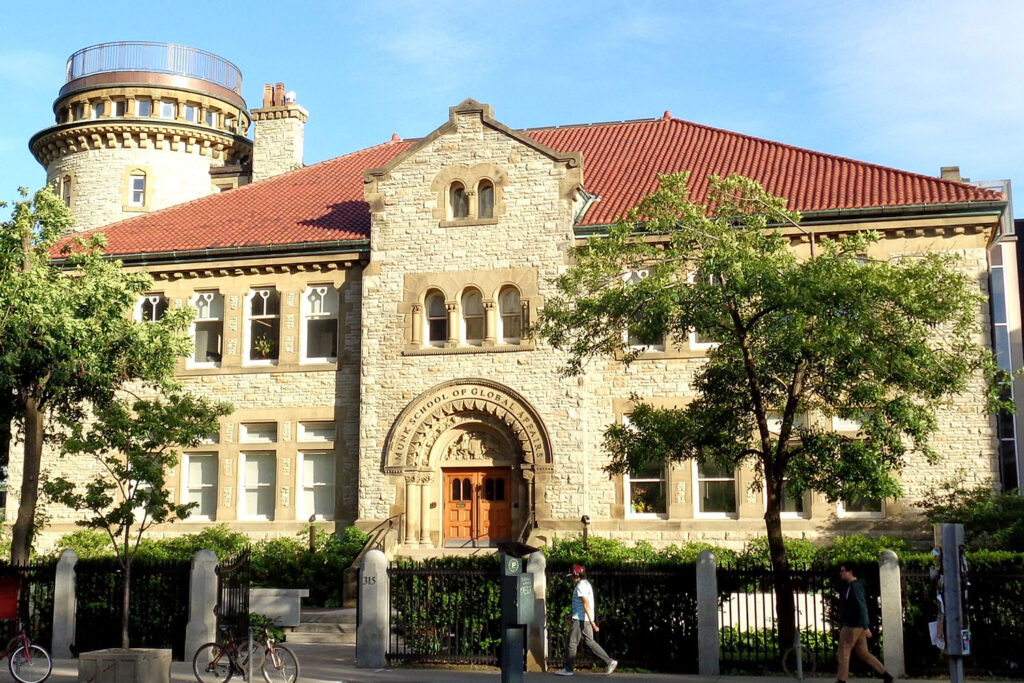Remarks on the occasion of the naming of the Pierre Elliott Trudeau Centre for Peace and Conflict Studies
Remarks on the occasion of the naming of the Pierre Elliott Trudeau Centre for Peace and Conflict Studies (Toronto, Ontario), April 27, 2004
Text of the speech:
Pierre Trudeau knew something about the devastation caused by war. As a young man in 1948, he traveled from London to see the convulsions of Eastern Europe in the wake of World War II. He saw the fighting that wracked the Middle East following the birth of Israel. He saw the madness of India’s partition and the chaos in Shanghai as the nationalist armies retreated before Mao’s onslaught. As he later wrote in his memoirs, “the route that I had chosen was strewn with obstacles created by armed conflicts of that time. It was incredible— everywhere I went seemed to be at war.”
The things he saw during that trip stayed with him for the rest of his life. In the course of his long political career, foreign policy was rarely a centerpiece of his public policy. But his passionate concern about war and its effects, and more fundamentally about the relationship between injustice and violence, was a palpable and ever-present influence on his political action. From his scathing criticism in 1963 of Pearson’s decision to allow nuclear warheads on U.S. Bomarc missiles to his peace initiative at the end of his career in 1983, Pierre Trudeau’s cause was the cause of peace.
His vision of the just society and of the just world was utterly at odds with another view of world order that is being widely discussed—and increasingly accepted as appropriate and right—by today’s opinion leaders, commentators, and public intellectuals. Many of these commentators argue that humankind is locked into a “clash of civilizations”—that the peoples of the world are so rooted in mutually unintelligible cultures, ethics, and cosmologies that the best we can do is agree on a sullen modus vivendi, while we prepare for battle along the frontiers where our civilizations meet.
Pierre Trudeau saw things differently. He understood that you can’t produce concord among diverse peoples when they each insist on going their own way— when they don’t talk to each other and, in the extreme, deny each other’s humanity. He would recognize today’s assertion that we face a clash of civilizations as a prescription for global apartheid and as a counsel of despair. It’s also a direct route to disaster, to multiplying anger among the world’s diverse peoples and escalating violence that will know no end.
He understood intuitively that peace had to be grounded in justice, and that justice had to be grounded in values of fairness, equality, and respect. He practiced these principles in Canada, and he believed they could be generalized to the world. “[My] approach to international relations,” he later wrote, “was really based on my approach to the Canadian community. I wanted to run Canada by applying the principles of justice and equality, and I wanted our foreign policy to reflect similar values.”
Today, we need to articulate and promote these principles more than ever, because we are entering a century that could be the most dangerous in humankind’s brief history—far more dangerous and far more decisive than the century we have just left. Beneath the surface of global affairs, pressures are building. These demographic, economic, technological, and environmental pressures are generating immense potential for mass violence. And at the same time as these pressures are building, we’ve created a world so tightly connected that local shocks cascade around the planet in the blink of an eye. We’ve also permitted the spread of technologies that enormously magnify the ability of violent people to destroy and kill. Soon it will be possible for small groups of people to destroy whole cities and humble entire nations, and this one fact by itself ensures that our future will be entirely different from our past.
In this perilous time, education has never been more important. Education ennobles the individual. It improves understanding across social and cultural boundaries, and in doing so it challenges the misguided rhetoric about the clash of civilizations. And, most importantly, it empowers collective action. In turbulent times like today’s, when we’ve come upon a moment in history where small events can decisively affect which path we follow into the future, education helps young people understand that by working together and by focusing their actions, they can literally change the world.
The Trudeau Centre for Peace and Conflict Studies educates young men and women to understand how and why conflict occurs, to know the best ways of preventing and resolving this conflict, and to have the tools to work together to change our world. There is no better country, no better city, and no better university in which to do this. The Centre’s 80 undergraduates are a living response to the idea that we are locked into a clash of civilizations: they hail, either directly or indirectly, from nearly 30 different countries and from an astonishing mix of religious, national, linguistic, and socioeconomic backgrounds. And in their talent, ambition, idealism, character, and courage, they represent precisely the human qualities that Pierre Trudeau taught us must be the foundation of the just society

Photo by Andrijko Z. (CC BY-SA 4.0)
Topics
Leadership and Politics
